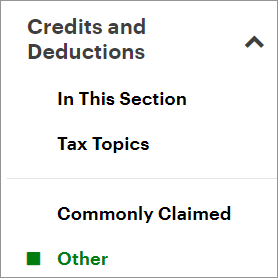T929: Disability Supports Deduction
If you have a physical or mental impairment and paid expenses in order to work, go to school, or do research, you can claim a disability supports deduction by completing form T929: Disability supports deduction.
Here are a few things to keep in mind, before you complete the form:
- You can’t claim expenses that you or someone else claimed as medical expenses, or were reimbursed to you by a non-taxable payment (such as insurance)
- Expenses must be claimed in the same year you paid them and
- Only you, the person with the physical or mental impairment, can claim your expenses
Note: You can split the expense amount between your medical expenses and disability supports deduction claim as long as, the total amount you’re claiming is not more than the total expense.
Remember to keep your receipts in case the Canada Revenue Agency (CRA) asks to see them later.
There are several expenses that you can claim to receive a disability supports deduction, including:
- Braille note-taker devices
- Electronic speech synthesizers
- Optical scanners
- Page turner devices
- Teletypewriters and
- Voice recognition software
Click here for a complete list of eligible expenses that you can claim. Remember that depending on the type of expense, you might need a prescription or a written certification from a medical practitioner to claim them as a disability supports deduction.
Note: If you’re filing a Québec return, you’ll also need to complete form TP-358.0.1-V: Disability supports deduction (Québec).
Follow these steps in H&R Block's 2025 tax software:
- On the left navigation menu, under the Credits & deductions tab, click Other.

- Under the DISABILITY-RELATED CARE heading, select the checkbox labelled Disability supports deduction (T929), then click Continue.
- When you arrive at the Disability supports deduction page, enter your information into the tax software.

